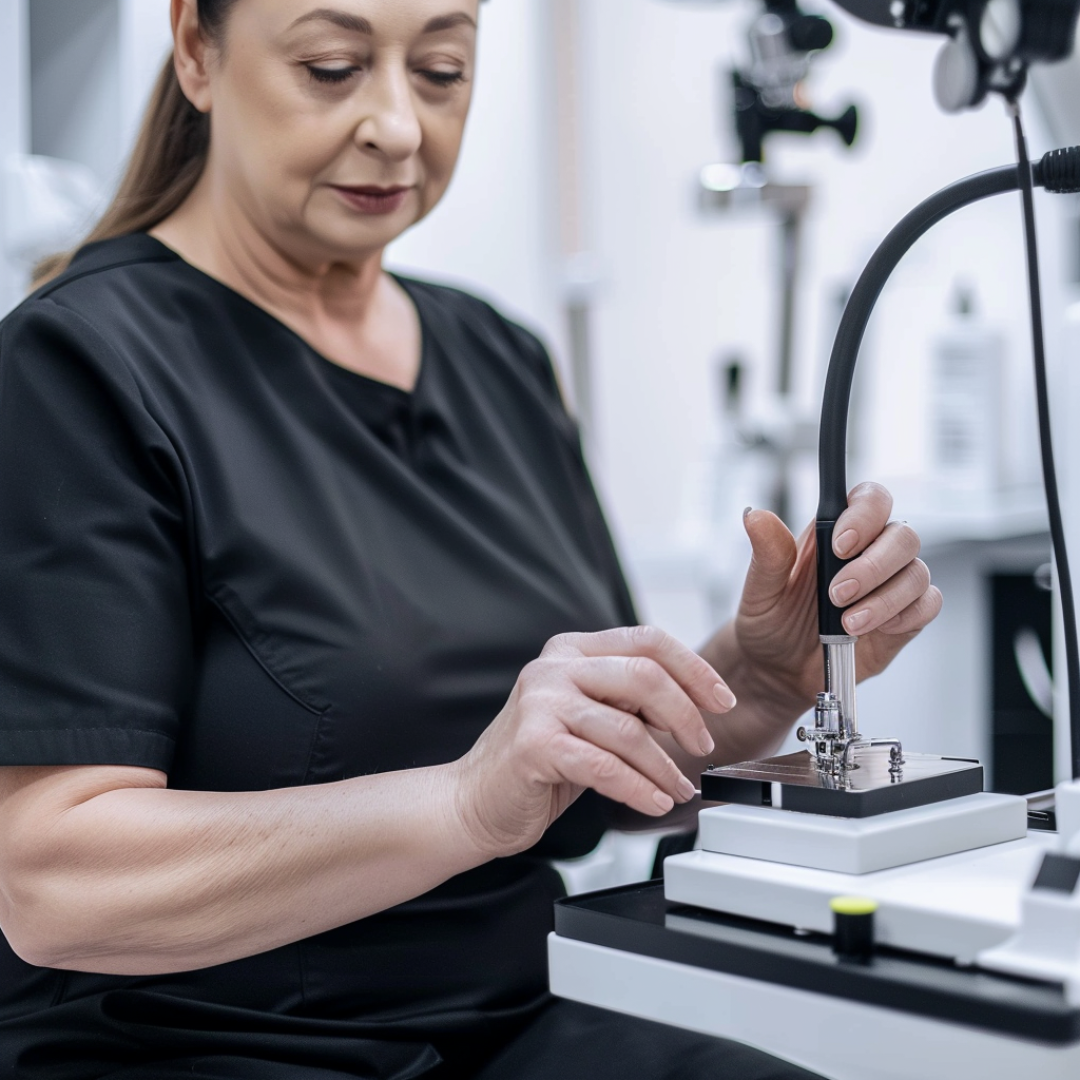Research and Contributions
Innovative Orthotic Devices for Plantar Fasciitis
To develop and evaluate the efficacy of novel orthotic devices designed to alleviate pain and improve mobility in patients with plantar fasciitis, a common and debilitating foot condition.


Objective: To develop and evaluate the efficacy of novel orthotic devices designed to alleviate pain and improve mobility in patients with plantar fasciitis, a common and debilitating foot condition.
Methods: This study was a double-blind, randomized controlled trial involving 150 participants diagnosed with plantar fasciitis. Participants were randomly assigned to three groups: one using the newly designed orthotic devices, one using standard orthotics, and a control group receiving no orthotic intervention. The study lasted six months, with assessments at baseline, 3 months, and 6 months. Pain levels were measured using the Visual Analog Scale (VAS), and mobility was assessed using the Foot Function Index (FFI).
Results: Patients using the new orthotic devices reported a 40% reduction in pain and a 35% improvement in mobility over six months, significantly outperforming the control group and the group using standard orthotics. Improvements were evident as early as the three-month mark, suggesting both immediate and sustained benefits.
Conclusion: The newly developed orthotic devices are effective in reducing pain and enhancing mobility in patients with plantar fasciitis, offering a promising non-invasive treatment option. Further research is recommended to explore long-term outcomes and potential benefits for other foot conditions.
Biologic Therapies for Rheumatoid Arthritis
Objective: To assess the efficacy and safety of biologic therapies in the treatment of rheumatoid arthritis (RA), with a focus on long-term disease management and quality of life improvement.
Methods: A longitudinal study involving 200 RA patients treated with biologic agents. The study measured clinical outcomes using the Disease Activity Score (DAS28) and patient-reported outcomes over a two-year period. Patients were monitored for adverse effects and compliance with the therapy. Data were collected at regular intervals, and statistical analyses were conducted to compare the outcomes between patients on biologic therapies and those on standard disease-modifying antirheumatic drugs (DMARDs).
Results: Patients receiving biologic therapies showed a significant reduction in DAS28 scores, indicating lower disease activity, and reported improved quality of life compared to those receiving standard DMARD therapy. The incidence of adverse effects was monitored, and while some patients experienced mild to moderate side effects, the overall safety profile was favorable.
Conclusion: Biologic therapies are highly effective in managing RA symptoms and improving patient quality of life, with a favorable safety profile. These findings support the use of biologic agents as a valuable treatment option for RA patients, particularly those who do not respond adequately to traditional DMARDs.
Cytokines in Chronic Muscle Pain
Objective: To investigate the role of cytokines in chronic muscle pain and their potential as therapeutic targets for conditions such as fibromyalgia and chronic myofascial pain syndrome.
Methods: A cross-sectional study examining serum cytokine levels in 300 patients with chronic muscle pain and 100 healthy controls. Participants underwent comprehensive clinical evaluations, including pain intensity assessments using the Numeric Rating Scale (NRS) and pain duration history. Serum samples were analyzed for levels of pro-inflammatory cytokines, including IL-6, TNF-α, and IL-1β, using enzyme-linked immunosorbent assay (ELISA).
Results: Elevated levels of pro-inflammatory cytokines (e.g., IL-6, TNF-α) were significantly associated with higher pain scores and longer pain duration in patients compared to controls. The study identified specific cytokine profiles that correlated with different pain characteristics, suggesting distinct inflammatory pathways involved in chronic muscle pain.
Conclusion: Pro-inflammatory cytokines play a crucial role in chronic muscle pain. Targeting these cytokines may offer new therapeutic approaches for managing chronic pain conditions. These findings highlight the need for further research into cytokine modulation as a potential treatment strategy for chronic muscle pain.
MEDICAL DISCLAMIER
The information provided on Dr. Jessica Markussen's website is intended for general informational purposes only and should not be considered medical advice. Always seek the guidance of your physician or other qualified healthcare professional with any questions you may have regarding your health or a medical condition. Never disregard professional medical advice or delay in seeking it because of something you have read on this website. If you think you may have a medical emergency, call your doctor or emergency services immediately. Dr. Markussen and her team are not responsible for any actions taken based on the information provided on this site.


